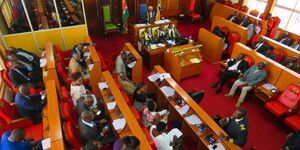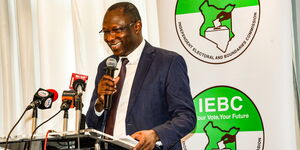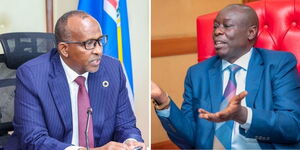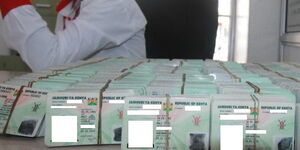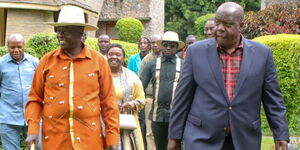The Supreme Court ruled in favour of Lesbian, Gay, Bisexual, Transgender, Queer or Questioning (LGBTQ) persons in their quests to officially register a Non-Govermental Organisation (NGO).
In its verdict delivered by a five-judge bench on Friday, February 24, the Supreme Court castigated the NGOs Co-Ordination Board for refusing to register four names for an LGBTQ organisation on the grounds that same-sex marriage is outlawed in Kenya.
Three judges in the five-judge bench ruled that community members have a right to associate even though the law considers same-sex marriages illegal. Hence, the refusal to register them was discriminatory and contravened the law.
"It would be unconstitutional to limit the right to associate through denial of registration of an association purely based on the sexual orientation of the applicants," the ruling read.
The court determined that using the word "sex" under Article 27(4) does not connote the act of sex per se but refers to the sexual orientation of any gender, whether heterosexual, lesbian, gay, intersex, or otherwise.
"It was of the view that the word "including" under the same Article is not exhaustive, but only illustrative and would also comprise "freedom from discrimination based on a person's sexual orientation."
"Therefore, the appellant's action of refusing to reserve the name of the 1st respondent's intended NGO on the ground that "Sections 162, 163 and 165 of the Penal Code criminalises Gay and Lesbian liaisons" was discriminatory in light of Section 27(4) of the Constitution," the court stated.
The NGO board, through its Executive Director, had declined to approve four of the proposed names on the grounds that Sections 162, 163 and 165 of the Penal Code criminalise Gay and Lesbian liaisons.
The names rejected by the board included the National Gay and Lesbian Human Rights Commission, National Coalition of Gays and Lesbians in Kenya, National Gay and Lesbian Human Rights Association, Gay and Lesbian Human Rights Council, Gay and Lesbian Human Rights Observancy and Gay and Lesbian Human Rights Organisation.
In its explanation, the board noted that the words, "gay and lesbians" in the proposed names were objectionable to the Board.
However, Justices Mohamed Ibrahim and William Ouko dissented and held a firm stance that the law was clear on the illegality of gays and lesbians.
The verdict was a culmination of a protracted case dating back to 2019. An LGBTQ activist petitioned the High Court to challenge the NGO Board's decision to turn down his application to register his organisation.
In the initial ruling, High Court judge backed the activist and found that the NGO Board's refusal violated the applicant's right.
However, a dissatisfied NGO Board appealed against the decision at the Court of Appeal, albeit with no breakthrough.
The Friday, February 24, ruling now paves the way for the LGBTQ organisation to make a fresh application in its quest to formalise its operations in the country.

